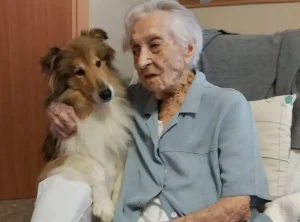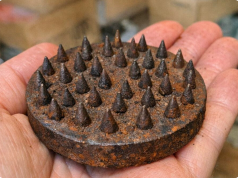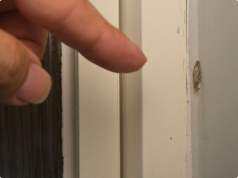Maria Branyas Morera, a Spanish supercentenarian who lived to the remarkable age of 117 before passing away last year, has become the focus of groundbreaking medical research aimed at unlocking the secrets of extreme longevity.
Born in the United States in 1907, Maria lived through two world wars, 21 U.S. presidencies, and witnessed transformative technological and societal changes—from the dawn of the automobile to the digital age. In 1915, she moved to Catalonia, Spain, where she spent the rest of her extraordinary life.
Before her death, Maria made a final request: that doctors study her DNA to understand what allowed her to live so long—hoping her biological blueprint could help others extend their own lives.

This wish led a team of scientists, including researchers from the University of Barcelona and the Josep Carreras Leukaemia Research Institute, to conduct an in-depth analysis of her cells and genetic makeup. As reported by The Mirror, they collected blood samples and performed a comprehensive examination of her biological profile.
Dr. Manel Esteller, the principal investigator on the study, told The Times: “The common rule is that as we age, we become sicker—but she was an exception. We wanted to understand why. For the first time, we’ve been able to separate being old from being sick.”
He added: “We can develop drugs to reproduce the effects of good genes. Maria’s parents gave her very good genes, but we cannot choose our parents.”
The findings revealed that, biologically, Maria was 10 to 15 years younger than her actual age at the time of her death—meaning her body functioned more like that of a healthy centenarian than someone over 115. She also had remarkably low levels of ‘bad’ cholesterol (LDL) and triglycerides, along with high levels of ‘good’ cholesterol (HDL), which are all markers of strong cardiovascular health.
Maria maintained a healthy lifestyle throughout her life—she never smoked or drank alcohol, stayed physically active, and remained socially engaged well into her later years.
But there was one daily habit that stood out—and may have played a crucial role in her longevity: her love for La Fageda, a popular Spanish brand of probiotic yogurt.
This particular yogurt contains beneficial bacteria known for reducing inflammation and supporting gut health—an increasingly recognized factor in aging and disease prevention.
According to The Mirror, Maria started each morning with a nutrient-rich smoothie made with eight different types of cereals, further emphasizing her commitment to wholesome nutrition.
As reported by Science Alert, scientists observed significant shortening of Maria’s telomeres—the protective caps at the ends of chromosomes—which typically shorten with age and are associated with higher mortality. However, recent studies suggest telomere length may not be a straightforward indicator of aging in supercentenarians. In Maria’s case, her unusually short telomeres might have actually protected her by limiting the uncontrolled cell growth seen in cancer.
“The picture that emerges from our study, although based on just one exceptional individual, shows that extremely advanced age and poor health are not inherently linked,” said lead epigeneticists Eloy Santos-Pujol and Aleix Noguera-Castells, according to Science Alert.
Dr. Esteller concluded: “The clues to extreme longevity lie in a combination of what we inherit from our parents and what we do with our lives. This balance—this mix—is likely about half genetics, half lifestyle.”
Maria Branyas Morera’s legacy isn’t just her record-breaking lifespan—it’s the scientific insight she left behind, offering hope that with the right genes and habits, a long, healthy life may be within reach for future generations.






